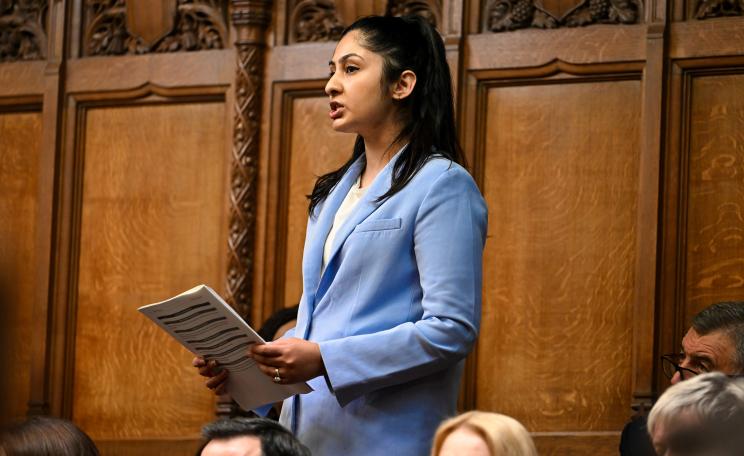Tax is one of the most powerful levers governments can use to adjust the way the economy works.
What to make of the somewhat bewildering spectacle of Labour opposing Rishi Sunak's Tory tax policy from the right with its rejection of an increase to corporation tax? Of all the examples of received wisdom turned on its head by the pandemic this is one of the most surprising.
Economists agree that there is no urgency about repaying the vast but essential borrowing during the Covid crisis, both because the bulk of it is owed to the Bank of England - £450 our of £485.5 billion - and because interest rates are currently so low.
Read: We need an ecological interest rate
But there are other very good reasons to increase some taxes, primarily because Covid has itself changed the way people understand economic solidarity and so support for challenging the disfiguring inequality that has grown over the past decades has never been stronger.
Corporation
There’s a reason why the phrase ‘the joy of tax’ has become popular in radical circles, because tax is one of the most powerful levers governments can use to adjust the way the economy works.
It can be used to reverse a decade of growing inequality and to force fossil fuels out of our economy. The argument about tax should not be about good or bad but about how it can be used strategically to manage an economy for the common good.
This is why it is essential that all progressives support and end to the era of corporate tax cutting begun by George Osborne. It has been cut by a third since 2010 and the lowest amongst G7 economies.
Allowing companies to avoid their taxes responsibilities to pay for infrastructure and health and education services is short-sighted when they depend on those very services to function effectively.
But the Green Party proposal for corporation tax is not a blunt instrument - rather it would be banded so that larger companies paid more than smaller companies, reinforcing our commitment to SMEs and to local economies.
Tax is one of the most powerful levers governments can use to adjust the way the economy works.
Radical
And we would support a windfall tax for those companies that have seen profits spiral during the pandemic.
We cannot allow profiteering from such a devastating crisis and also need to work with the EU to ensure that proposals for reporting earnings transparently by country spells the end of profit-shifting tax avoidance by the global monopolies.
Unsurprisingly, the Green Party budget proposals also include a strategic focus on the climate crisis, a greater threat to our security in the longer term than Covid, but one that is barely mentioned by Labour or Tories as they discuss tax and spend.
Our budget proposals headline a range of environmental taxes that can provide incentives to speed up the sustainability transition.
The first and most important is a high and rising carbon tax: we propose £100 now, rising to £500 by 2030. This is a radical move but one that reflects the existential climate crisis we are facing and lives up to the climate rhetoric that, from the mouths of other politicians, turns out to be only hot air.
Safety-net
This is the sort of leadership we need to show as the country hosting the next round of vital UN climate talks in Glasgow in December.
There, we are arguing that Boris Johnson, the prime minister, should propose that such a carbon tax is adopted on a global basis and combined with the carbon tariff on imports now under discussion in the EU.
This would prevent countries cheating on their climate obligations and under-cutting more responsible countries.
Our carbon tax proposal is matched by a proposal to ensure that the money generated is returned to compensate citizens as fossil fuels companies increase their prices to absorb the cost of the tax.
We would use it to fund the universal basic income that would have provided a much surer safety-net during the pandemic and will be needed in the rocky times ahead. And to pay for a publicly funded home retrofit programme and support the electrification of our transport systems.
Zero
We are also arguing for a change to the VAT regime so that renovation of existing buildings to make them carbon-efficient is rated lower than new-build, a policy supported by the Commons Environmental Audit Committee, the Architects Journal, and the Federation of Master Builders.
The current VAT regime for construction is perverse, incentivizing the much more carbon-intensive new construction when retrofit would ensure the homes we currently live in were warm and fit for a net-zero future.
The unexpected positions on tax adopted by chancellor and shadow chancellor indicate that both are acting not strategically, nor even rationally, but in favour of their narrow party interests.
The Tories are signalling to the working class voters who chose them at the last election that they will not return to austerity while Labour are signalling to the same voters that they can be trusted on the economy.
The opportunity to use taxation policy to reduce inequality or accelerate our progress towards net zero is being sacrificed on the altar of party politics.
This Author
Molly Scott Cato is formerly the Green MEP for South West England and Gibraltar and is a professor of economics.







